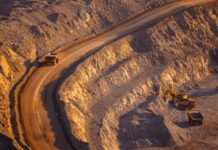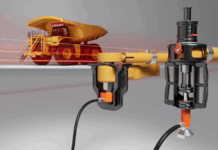Resources sector fuels seventh consecutive budget surplus

Despite rising economic uncertainty, the WA FY26 State Budget handed down yesterday with a $2.4b operating surplus, including sizable wins for the resources sector.
The WA Government will deliver $1.1b through the budget to secure a future that is Made in WA, headlined by a $500m investment in the Strategic Industries Fund, which brings the fund’s total value to $1b.
The additional investment will support a range of key priorities outlined within the government’s Made in WA plan, including fast-tracking clean energy and major industrial projects which will be core to securing the WA economy’s nation-leading status.
These investments will support a range of job-creating projects across WA and will be complemented by:
- $30m for new energies industries through the Investment Attraction Fund,
- $40m to top up the New Industries Fund and
- $30m to top up the Collie Industrial Transition Fund and support the town’s Just Transition.
The WA Government says economic diversification is a core focus of this budget, with a further $38.5m to be invested in job-creating initiatives and programs.
Notably, $8.9m will go to the Exploration Incentive Scheme, to assist miners to locate the minerals required for the global energy transition and $1.1m set aside for an Advanced Biofuels Strategy.
The Chamber of Minerals and Energy of WA (WA CME) welcomes the release of the budget, which confirms the resources sector has provided more than a quarter of government revenue over the past seven years.
The WA CME says the continued strength in royalty payments — which have totalled $77.8b billion over the past seven years — reflects a resilient iron ore price and record prices for gold, which are masking the very challenging conditions facing nickel and lithium producers.
CME head of economics Aaron Walker says the resources sector continues to underpin the high quality of life enjoyed by West Australians.
“No other industry has made a greater contribution to the state’s financial health over such an extended period of time,” he said.
“The $77.8b in royalty payments over the past seven years is enough to build Optus Stadium 48 times over, with that money enabling the provision of essential services such as roads, rail, schools, hospitals, police and cost of living assistance for struggling families.”
The budget also included a focus on economic infrastructure and utilities, with $15b allocated over the next four years to poles wires, pipes and ports.
Of that money, an additional $584m is being invested in Clean Energy Link North, the first of a number of major new transmission lines that will be critical to decarbonising WA’s power grids.
Additionally, $543m will be spent upgrading the Goldfields pipeline to meet growing industrial and agricultural demand for water.
Mr Walker welcomes the investment in infrastructure designed to enhance the productive capacity of WA’s resources sector.
“Royalties are now firmly entrenched as a critical revenue stream for the WA Government,” he said.
“Ensuring that stream continues to flow strongly throughout the clean energy transition will require a sustained focus on ensuring we have the right fundamentals in place to attract global investment.
“Industry is concerned about the rising cost of electricity on the South West Interconnected System (SWIS).
“Access to affordable and reliable energy was a key issue raised at the [WA] Premier’s recent Economic Resilience Forum.
“Competitive electricity prices are essential not just for the development of new industries, but for the ongoing viability of the existing operations that have helped fund this budget.”
Earlier this week the WA Government announced a period of rapid industry consultation ahead of finalising plans for the state’s transmission rollout by the end of the year.
“It is important the WA Government prioritises releasing a master transmission plan as soon as possible because we know transmission lines are critical to unlocking investment in new large-scale renewables,” Mr Walker said.
“On the generation side, the recent release of draft Community Benefits Guidelines for renewable projects is a positive step towards accelerating the build-out required to replace coal-fired power, while ensuring local communities also benefit.”
WA CME also welcomed the confirmation that the Strategic Industries Fund will be doubled to $1b.
“We know that WA’s 13 Strategic Industrial Areas are not currently project-ready, or competitive with those on offer by our South East Asian neighbours, so we appreciate the [WA] Government taking action to address this,” Mr Walker said.






















